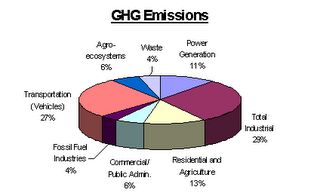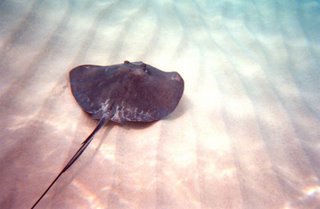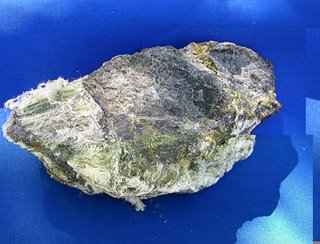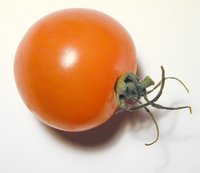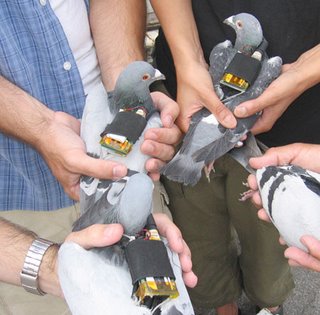California's going to court. The state is sueing what it calls the "big six" automakers (GM, Ford, DaimlerChrysler, Nissan, Toyota, and Honda), and is seeking tens or hundreds of millions of dollars (
the quote I found from the attorney general for the state wasn't too specific on exact amounts...) in damages.
These car manufacturers continue to churn out vehicles that emit CO2 - that so very famous greenhouse gas. In fact, the cars made by these companies emit 289 000 000 metric tonnes (or thereabouts) of the stuff into the American atmosphere every year. That really is a lot. And California is feeling the effects of global warming, it says: reduced snow pack (which will lead to water shortages in an area that is already home of some of the worst water supply problems on the continent), increased ozone pollution and concomitant health effects, beach erosion, wildlife impacts...
So California s trying to do something. They legislated tougher emissions from tailpipes - the strictest such regulations ever as part of their plan to cut greenhouse gas emissions by 25% (hurrah!!). And the car companies are holding them up by making legal claims that federal law overrules the new state law on tailpipe emissions (Boo).
And so California appears to be retaliating. And I have to say it's kind of fun, and I love that the whole thing has generated a ton of publicity.
The problem is: why doesn't the state sue the people who drive the cars? Or the municipalities for not providing alternate public transit alternatives?
Who, ultimately is responsible for these emissions? Is is the car companies, with their alluring and coersive advertising? They do prefer that we spend more dollars, which means buying bigger, less fuel-efficient cars, after all. Is it the governement, which often builds roads instead of funding transit? Perhaps it's the scientific community for failing to adequately convey conviction about whether global warming is happening at all - or the oil industry for injecting doubt into the debate.
Or... is it us, who appear to place convenience above the short and long-term health of our communities (and put pressure on our political leaders to build more roads)?
P.S. Thanks Simone for the tipoff!





















